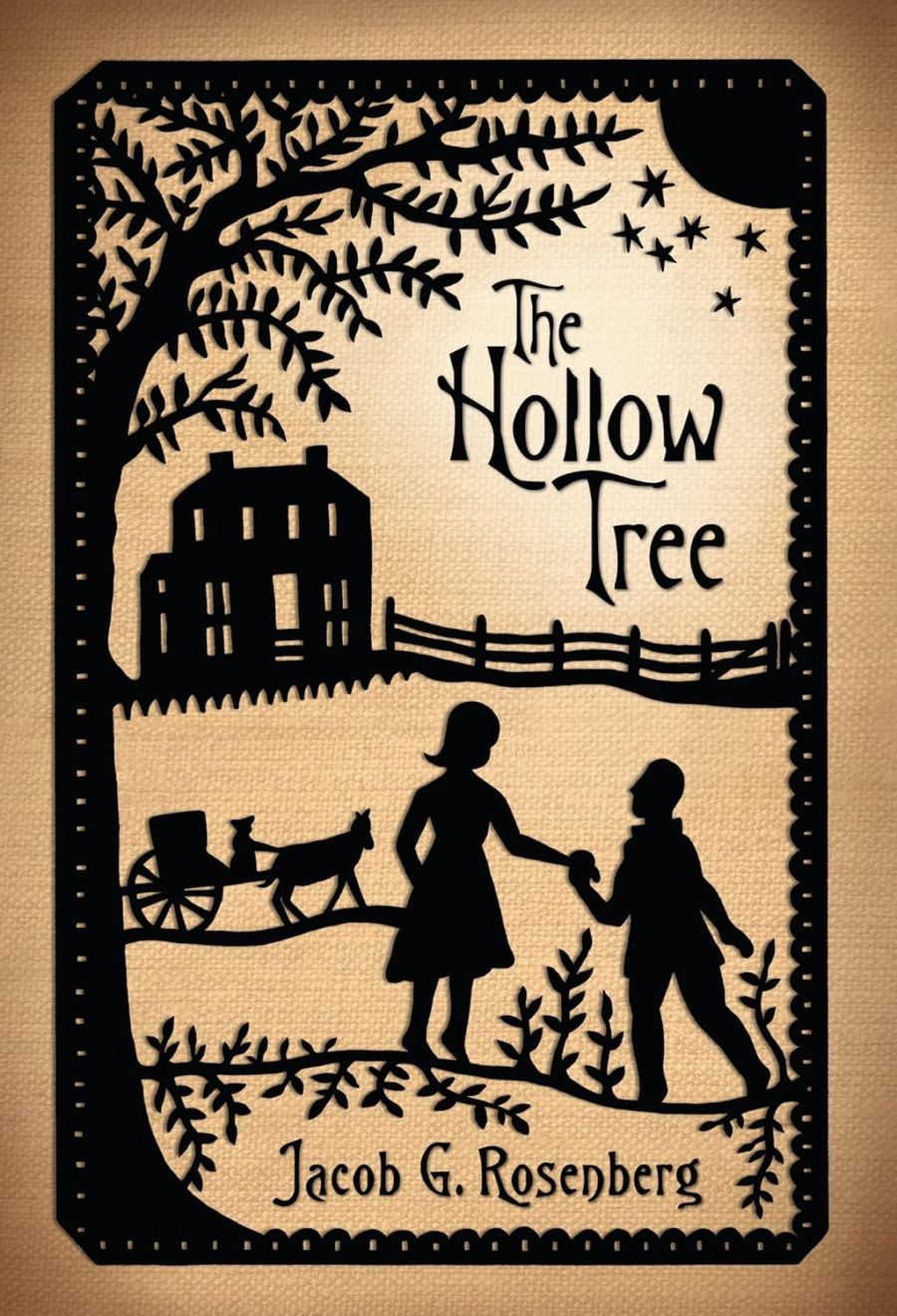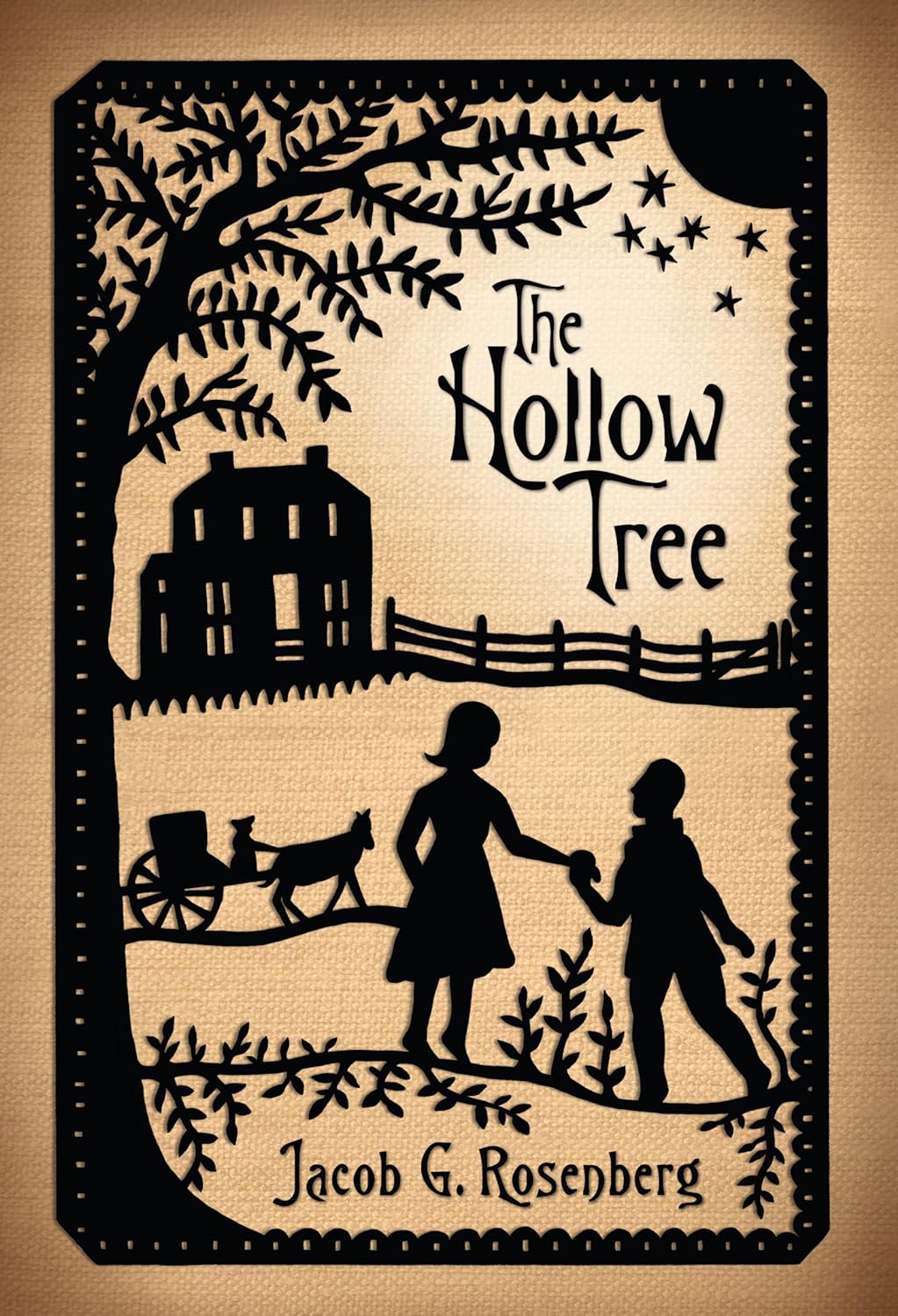
- Free Article: No
- Review Article: Yes
- Article Title: Nothing without a ‘but’
- Article Subtitle: A posthumous novel from Jacob G. Rosenberg
- Online Only: No
- Custom Highlight Text:
Jacob Rosenberg completed the manuscript of The Hollow Tree shortly before his death in October 2008. Born in Lodz in 1922, he lived there until he was deported to Auschwitz, where he lost his entire immediate family. He was later a prisoner in the Woflsburg and Ebensee concentration camps. In 1948 he and his wife, Esther, emigrated to Australia, where they raised a family and built a successful clothing business.
- Book 1 Title: The Hollow Tree
- Book 1 Biblio: Allen & Unwin, $26.99 hb, 256 pp, 9781741759006
- Book 1 Cover Small (400 x 600):

- Book 1 Cover (800 x 1200):

In East of Time (2005), one of his two superb volumes of autobiography, Rosenberg describes his early passion for literature and his desire to be a writer. Even as life in the Lodz Ghetto became intolerable, that passion and desire were nurtured by the ghetto’s remarkable literary and intellectual milieu. He wrote throughout his business career and then in retirement, producing three books of poetry and prose in Yiddish, three volumes of poetry in English, and four works of prose narrative in English. Fluent in four languages, he was a voracious reader, equally at home with the Bible, the Russian novel and magic realism. Even in his eighties, when he produced his finest work, he would read and write from breakfast to dusk in his orderly, book-lined study in South Caulfield. He was a compulsive writer – because born writers have to write, because he’d lost so much time, and because without writing the pain of the past could be unbearable. He took seriously the diasporic Jewish writer’s obligation to ‘keep singing, in the language of your adopted land, your people’s interrupted song’ (Sunrise West, 2007). He was thrilled when East of Time and Sunrise West won major literary awards, but even these late successes were tempered by the past. ‘To write well about the Holocaust is a Pyrrhic victory,’ he once said.
Jacob loved people and was much-loved in return. It was one of the great pleasures of my life to know him well during his last decade. Short and bald save for an unruly white fringe over collar and ears, there was a sparkle about his presence, but also a profound underlying sadness. He loved life despite having been so savagely battered by its depravities. He enjoyed meeting friends at his favourite haunts – a coffee shop in Caulfield; an Italian restaurant in South Yarra. He was a marvellous friend – caring, nurturing, forgiving of one’s self-indulgent foibles – and tremendous company. A deft, gnome-like raconteur, he was an aficionado of the absurd. Lunches with Jacob and his preferred merlot were a treat. Conversation could go anywhere, but religion, especially the Jews and Judaism, and above all the literary life were his great topics. Now and again he’d raise a bent right index finger and fix you with a ‘mark my words’ stare. He did not share my interest in Australian Rules but was of course aware that Joseph Gutnick, a Hassidic Jewish businessman, had rescued the Melbourne Football Club from financial embarrassment and a proposed merger with another club, and had taken over as club president. Football’s decidedly secular politics were already impinging on Gutnick when I asked Jacob what he thought of Joseph’s sudden sporting celebrity. Up went the crooked finger: ‘You’ll see. He’ll end up being the football.’ And so he did.
His attitude to Gutnick reflected complex feelings about Orthodox Judaism. He respected its determination to survive and prevail, but feared its inability to adapt to universal human needs. A humanist and in his own way deeply spiritual, he considered God a human creation. In this he followed his father, Gershon, an unforgettable figure in East of Time, a ‘God-intoxicated agnostic’ who believed that there was no God but that ‘one ought to live one’s life as if there is’. In The Hollow Tree, Herbert Moses, a sagacious ‘Sojourner’ (the book’s allegorical name for Jews), speaks for Rosenberg when he describes Sojourners as ‘universalists’, but adds that ‘a universalism that doesn’t begin at home is not authentic’. Gershon was a leading member of the Lodz branch of the Bund, a Jewish socialist movement that espoused Yiddish and sought Jewish emancipation in the Diaspora rather than a return to Palestine. Even after the Holocaust had shredded many articles of Bundist faith, Jacob retained a passionate belief in universal brotherhood and sisterhood.
The autobiographies, which are perhaps his crowning literary achievement, are among the greatest written in Australia, and are likely to become classics of international Holocaust writing. Rosenberg described East of Time as a ‘rendezvous of history and imagination’. Imagination in his work draws upon many sources, chiefly perhaps the Bible, Shakespeare, European realism and romanticism, Jewish folk tales, Kafka and magic realism. The autobiographies are narrated in beautifully crafted vignettes. Some of these gaze directly upon ‘history’; others approach it in more oblique, allusive ways; but throughout these volumes the prose is remarkable for its poetic delicacy. A unique tone of pained incredulity, which also features in Rosenberg’s poetry, chronicles the descent of decent lives into nightmare. Many vignettes are prefaced by deft, often ominous evocations of seasons and landscapes. An array of extraordinary characters, some sadists but the majority sages or people of simple dignity, rises up from these pages. Rosenberg’s characters owe more to Yiddish fiction and folk tale than to Freudian modernity, but he writes with moving compassion and remarkable, understated psychological acuity. The most complex character in these books is himself, but he is never a narcissistic autobiographer. That was not his style; nor would he have thought self-indulgence appropriate in a survivor. Like many who were spared, he was haunted by survivor guilt and wondered why fate had allotted him a life after the war.
The Hollow Tree is another ‘rendezvous of history and imagination’, this time including prominent elements of fairy tale, magic realism and the novel of ideas. Much of the story is set in the ‘city of Seven-Smiles’. Like ‘Sojourners’ and other emblematic names in the narrative, this one serves to generalise the action, to strip it of some of its historical specificity and to cast it as the stuff of legend; or, more to the point, nightmare. And yet enough historical specificity remains for us to guess that this city is somewhere in Eastern Europe and to recognise events that were highly typical of the immediate pre-war and Holocaust period.
The protagonist, Jan Milder, is an aspiring Jewish poet from a successful, acculturated Jewish business family. A devotee of Heinrich Heine and Stefan Zweig, he finds himself drawn to the more earthy, proletarian milieu of the non-Jewish, socialist Bender family. Rudolph Bender is a blacksmith, his son Ferdinand a school friend of Jan’s, and his daughter Milena is Jan’s young love. Chapter nine’s prefatory landscape sketch has the young couple pursuing their love ‘on the outskirts of the city where roads ran out of road’ at the inn of Elijah, a man perhaps ‘more a magician than an innkeeper’. There is indeed magic and enchantment about this love, but also foreboding and that familiar tone of pained, anticipatory incredulity. An earlier paragraph about Jan begins, ‘But – and there is nothing without a but …’
The narrative traces quite intricate psychological and social patterns: Jan’s identification with his cultured mother, Rena, and his increasing estrangement from Albert, his unsympathetic mercantile father; Rena’s emotional discontents and the strains in the marriage; Albert’s tragically misguided sense of belonging and his rationalisations for staying put when it is clear that disaster is imminent. The narrative moves deftly through these interior worlds, providing an empathetic, intimate cameo before the fall. Herbert Moses’s advent is particularly important because his daughter, Marion, falls in love with Jan, with complicating and finally tragic consequences, and because people of Herbert’s kind matter so deeply in Rosenberg’s narrative world. He prized wisdom above all other values and accomplishments, and his imagination quested constantly after the wise man, the wise woman. Sometimes, as in Shakespeare, the simple characters will say things of astonishing profundity; and his narratives are studded with sagacious people such as Gershon and the doomed writers of Lodz Ghetto, whose supremely human gift for awe and understanding rises above the horror that consumes them. Jacob survives the horror, and the tale he tells on his return is in large part about the special human qualities of those who perished. In telling the tale, he immortalises them and what they stood for, but without pretending that wisdom can finally penetrate the mystery of radical evil. Herbert is another of these doomed sages, and in The Hollow Tree’s strangely mythopoetic, apocalyptic pages, we encounter wise fools, simple seers, reincarnated Old Testament prophets such as Elijah, who claims that the turrets of his inn are taken over at midnight by ‘spirits endowed with the light of creation’, and Amos, who memorably tells Jan that ‘there are millions of questions roaming our universe, and very few answers’.
As the plight of the Sojourners becomes increasingly desperate, Jan is prevailed upon to escape. His family perishes, but Milena, who falls pregnant on their last night together, survives, as does their son. The escape narrative is gripping, surreal and morally complex. Here again, the book recalls familiar Holocaust patterns. Many, like Jan, who escaped faced impossible moral dilemmas and, like Jacob himself, were to know the strange haunting of survivor guilt. Jan has little to guide him, save scattered advice he receives in a state of terror and the haunting, shifting, prophetic counsel that comes in a recurrent dream about lilac that blooms in a hollow tree. His predicament, however, occasions a series of deep, poetic reflections on the perplexities of loyalty. Is blind loyalty a virtue? How are loyalty and personal authenticity related? How does loyalty function as a constituting force of community, and how do we negotiate conflicting loyalties? What becomes of loyalty and other virtues when our customary moral universe is in disarray? Is Herbert right when he tells Jan, ‘To be an unbending adherent in a world of stony realities … is to ask for trouble. Not because of one’s allegiance, but because such an ally will be forced to conform or be squashed, trampled on – or in the end annihilated by the crude laughter of fate’?
In the end, Jan is left with terrifyingly little – yet with ever so much more than nothing. He has his life and the life of another who is precious to him, and with this, despite the grief and devastation, come responsibilities which in turn signal the possibility of a decent human future. We are left with hope, but wise hope, which means only hoping for what is really worth having. Allen & Unwin’s exquisitely produced hardback volume is a fitting tribute to a fine writer and a marvellous human being.


Comments powered by CComment